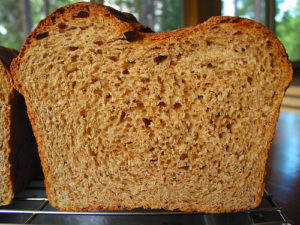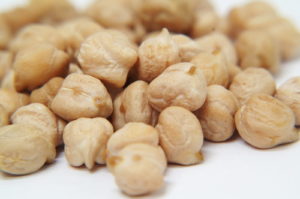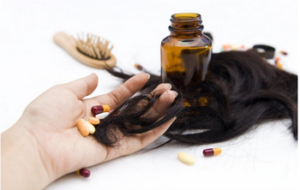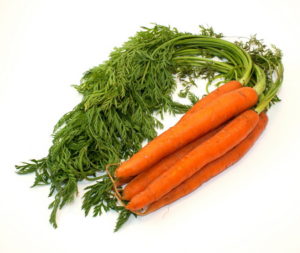
You might have heard about the negative effects of free radicals and how antioxidants are used to remove them. However, very few of us know what free radicals are and how they work against the human body to inflict harm.
In this article, we discuss how free radicals affect our health and how we can alleviate their harmful effects with the help of antioxidants.
What are Free Radicals?

Electrons, when not paired in their atomic orbits are highly unstable. A free radical is a name given to an atom that possesses an unpaired electron, meaning a missing electron, and subsequently, produces unstable cells that can damage our cell membranes.
The process by which atoms lose electrons is called oxidation and this is not a healthy process for us humans (or any animal) and it can result in a variety of illnesses. When the free radicals are successful, they set off an oxidative chain reaction that can affect hundreds of millions of molecules and consequently, inhibits the cells that work to keep our bodies healthy.
Let’s see how free radicals operate.
Reactions of Free Radicals in Our Body
As mentioned. when free radicals are formed, they try to obtain electrons from different molecules, be it proteins, fats, cell membranes, or genetic molecules; in other words, they try to steal electrons from the atoms of the nutrients that work to keep us healthy. The removal of an electron from any such molecule changes its basic state and triggers an oxidative chain reaction. This phenomenon caused by free radicals is known as oxidative stress.
What is the Free Radical Theory of Aging?
According to the free radical theory of aging, organisms age because their biological cells accumulates oxidative damage of free radicals over time. Even though the debate on the authenticity of this theory is still ongoing, research studies have agreed on the fact that oxidative stress can lead to this degeneration.
For instance arthritis, heart problems, Alzheimer’s disease, hypertension, Parkinson’s disease, muscular dystrophy, and many other health complications can be caused by the prevalence of free radicals.
According to the free radical theory of aging, if oxidative destruction caused by free radicals can be capped, then it can provide longevity to any living being.
So, have we found the fountain of youth? Most likely not, but have we found a way to keep us healthy to the point that we may live longer? Absolutely.
Sources of Free Radicals
To counter the effects of free radicals, it is imperative to know how they originate. They can be produced within the body or we get exposed to them from external sources. Whatever the case, knowing where they come from, holds the key to getting rid of them!
Internal Sources of Free Radicals
- The human body needs the energy to survive and grow. This energy comes from breaking down the food that we eat into ATP molecules with the help of oxygen. This chemical reaction also produces free radicals as a byproduct.
- Free radicals are also produced when the body undergoes severe stress levels or inflammation (the process by which the body moves to protect itself against harm; e.g. cutting yourself while shaving – white blood cells run to protect from the injury).
- There are a host of other ways that free radicals can occur. Our job is to keep them at bay by exercising, eating the right foods, and avoiding unnecessary stress.
Sources of Free Radicals

What should we stay away from? Let’s start with fried foods. Not only are they bad for your weight, but how they are cooked causes free radicals to develop.
There are lots of harmful external resources that can expose the human body to free radicals as well, as indicated below.
- Industrial pollution (including chemicals and smoke)
- Radiation
- Pesticides
- Toxic Metals
- Cigarette Smoke
It is practically impossible to get rid of external free radicals altogether since they are all around us, in the air we breathe and in the food and water we consume. The best practice is to try and minimize their levels in your body.
How to do this? Read on for more information.
Antioxidants: Crusaders Against Free Radicals
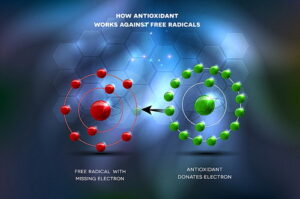
As the name suggests, antioxidants are substances that inhibit the process of oxidation. Introducing antioxidants in the body means that you can stop the oxidative process, officially called oxidative stress.
How Do Antioxidants Inhibit Free Radicals?
Antioxidants stop free radicals from inflicting damage by donating the electron they are looking for.
Like free radicals, some antioxidants are produced within the body, while others can be consumed through dietary products and supplements. Fruits and vegetables are some of the best sources of antioxidants, but there are other foods as well.
There are several other antioxidants, which although not as vital as the ones mentioned above are also necessary for combating the negative effects of free radicals.
- Lycopene
- Vitamin C and E
- Anthocyanins
- Selenium
- Polyphenols
- Curcuminoids
What Foods Contain the Highest Amounts of Antioxidants?
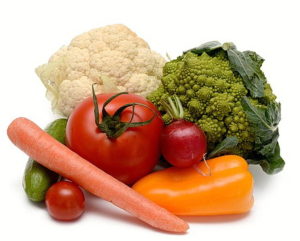
Coffee has been known to contain high levels of antioxidants, but here’s a short list of some other foods that contain antioxidants:
- Green Tea
- Dark chocolate
- Blueberries
- Broccoli
- Potatoes
Making Sense of It All
Antioxidants are free radical killers. They reduce the formation of ions or free radicals and work towards donating an electron. Once the cell has its missing entity – the electron, the free radical is neutralized. The idea is to maintain the availability of antioxidants by eating the right foods and avoiding external resources such as smoking and alcohol.
In general, you can make sure that your body has access to antioxidants by adjusting your dietary habits around fruits and vegetables. Plant-based foods are one of the richest sources of micronutrients and antioxidants, and both of these substances are necessary to rid the body of free radicals.
Bottom Line
Cells that have missing electrons in the body are bad news. If these guys are allowed to accumulate, they can become very harmful to us. There are many ways that oxidation can occur within our bodies. But there is a hero – Antioxidants – molecules that search for and neutralize these free radicals. We can obtain antioxidants by consuming foods and drinks rich in antioxidants daily.




